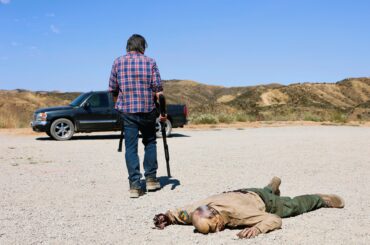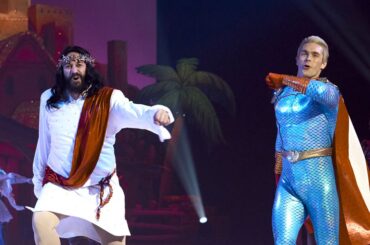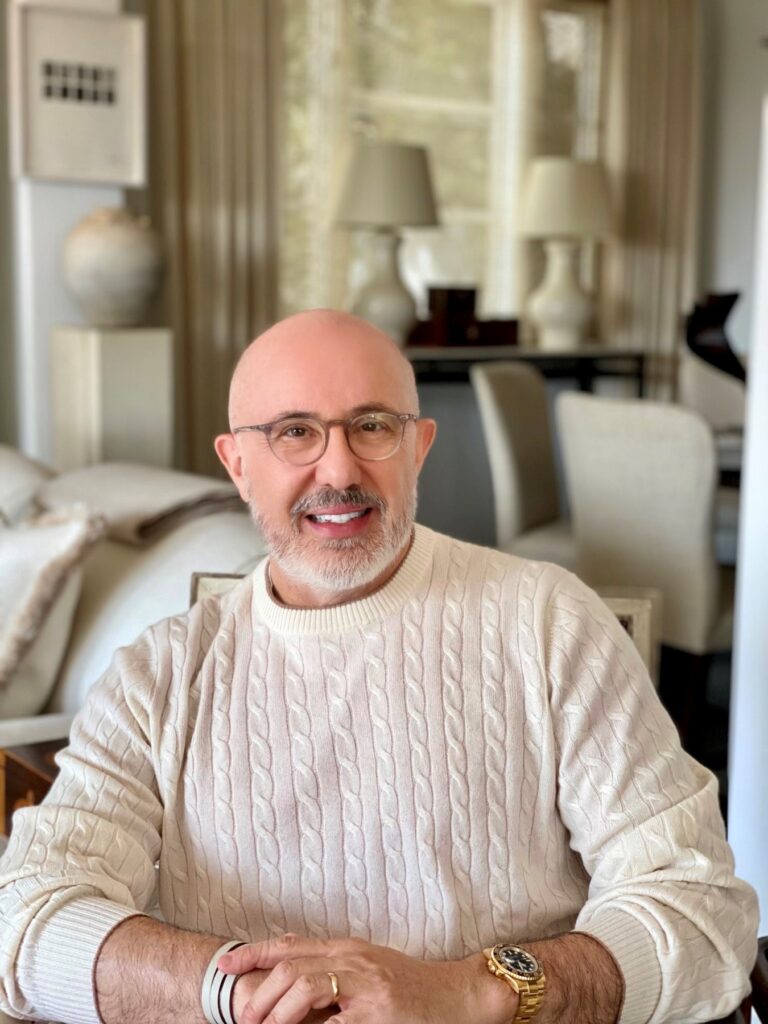
Faye Dunaway is one of the best and most celebrated actresses of all time. Her career took hold in one of the most important periods for film, New Hollywood. Her breakthrough role in 1967’s Bonnie and Clyde propelled her to stardom and the film itself cemented a new wave of cinema that was edgier and more realistic paving the way for the roles she would play for the next several years. All-time classic films like Chinatown, Three Days of the Condor, and Network, for which she won an Academy Award.
Faye is a new HBO documentary that just premiered at Cannes to rave reviews. It’s directed by Laurent Bouzereau, an award-winning documentarian and author. He has produced and directed hundreds of behind-the-scenes documentaries and has interviewed many of Hollywood’s best and brightest, highlighting some of the greatest films of all time.
Bouzereau’s recent films HBO’s Natalie Wood: What Remains Behind and the Netflix Series, Five Came Back, were both well received. Bouzereau recently spoke to Immersive about his new film via Zoom. The conversation has been edited for clarity and length.
How did this film come about?
I’ve been directing quite a few documentaries and feature docs. I had a series on Netflix as well, and I’m always looking for what is the next big story I’d like to tackle. I’ve had a friendship with Liam Dunaway, Faye’s son for quite some time. I, of course, shared my passion for her work, and I had met her once actually. We started talking and eventually, he said, “Well, let’s organize a dinner with mom.”
And so, we went to New York and had dinner with her. It was just really quite wonderful. In fact, in the morning, I had found in a movie memorabilia store in New York, the Life Magazine with Bonnie and Clyde on the cover. At the dinner I said, “Do you remember that Life Magazine article?” She’s like, “Oh my god, it was glorious. They took pictures of me at a nightclub.” I said, “Do you have it?” And she’s like, “No, I don’t have it.” And I said, “Well, here it is.” She started crying. It was just a nice little window into how amazing she is and how nostalgic she could be.
How did you convince her to do it?
I was very patient. She was a little reluctant at the beginning because true actors like her, particularly actors of her generation, I feel they don’t like to talk about their process. They’re also very private, which I respect. She was nervous about three aspects of her life and career. One was Mommy Dearest. The second one was the fact that Liam, her son, is adopted and the third aspect was her bipolar disorder, which she now has identified medically. She said, “Listen, some people are struggling a lot more than me, and I don’t want to become the poster child for this, but I’m really happy to talk about it if it can help one person, that would be fantastic.”
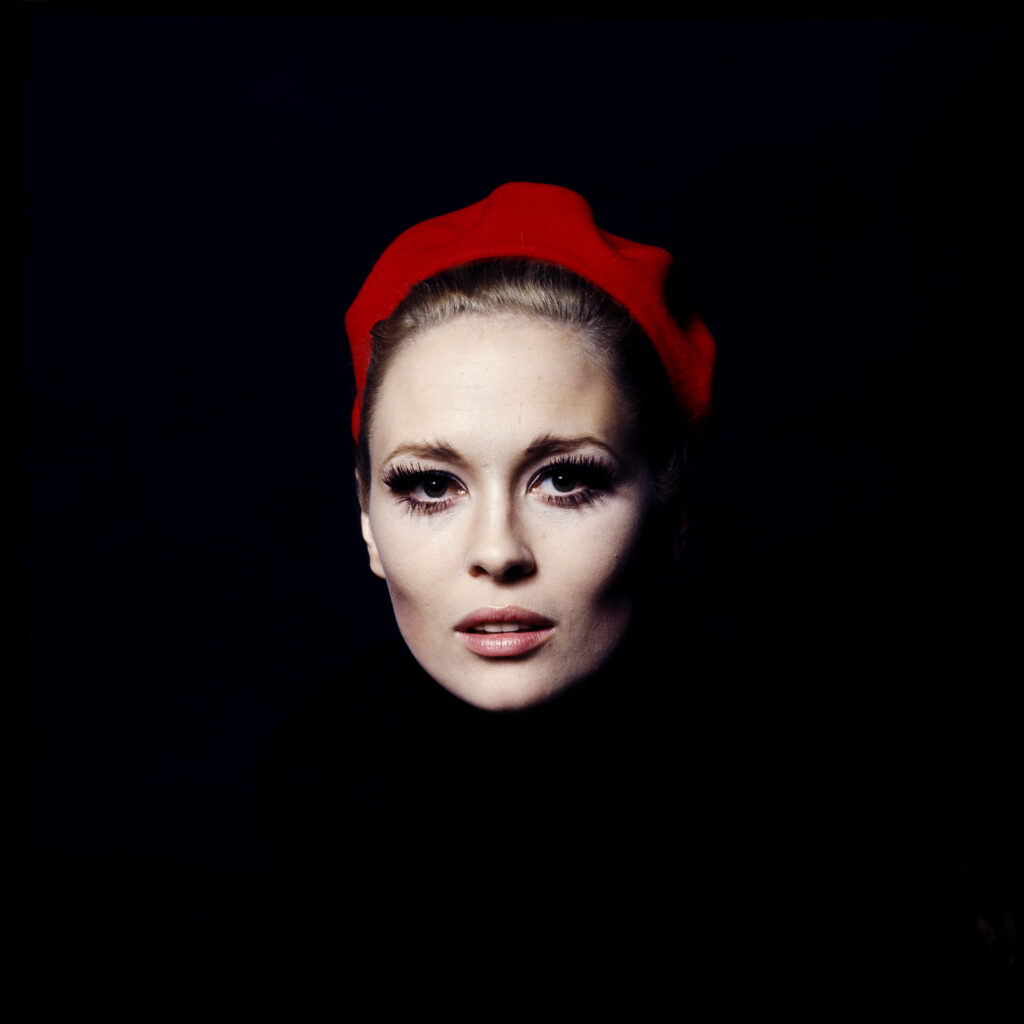
It was nice watching your film that gives her this space to speak and kind of explain herself.
I don’t consider myself a reporter. I’m a storyteller. I’m a filmmaker. I approached this in a way that I have a dance with the subject. I wanted her to know I was always filming and I was going to capture some not-so-flattering things, but let’s put that upfront so that people know this is not a vanity project. It’s not a thing that’s controlled by her, but in a way, because I’m telling her story and I wanted to deliver a story, I am telling it through her.
Her career took place at the peak of one of the best periods in film history, the late sixties and early seventies. From Bonnie and Clyde, Chinatown, Network, Three Days of the Condor - one classic after another. What stood out for you?
I grew up in the seventies, so I loved all those films, but not only the classics like Network and Chinatown, but also The Towering Inferno, in which she had a big role. It was the first movie poster I ever bought. And so, she was arguably on my wall my entire childhood. When we were working together, and she knows how much I love The Towering Inferno, she bought me an original American one. She signed it, and she said, “Laurent, there’s always a way out.”
They are trying to figure out exactly the subtext of all this. It’s an era of cinema that will never be equaled because it’s directors like Steven Spielberg and Brian De Palma and Francis Ford Coppola and so on, who are real students of cinema. They’re influenced by the golden age of cinema, Alfred Hitchcock, John Ford. And yet they are taking it to another level. They’re taking it out on the streets. They’re no longer a prisoner of the studios. And that, to me, is what’s so magical about those films because they’re influenced by cinema, but they’re taking it to another level.
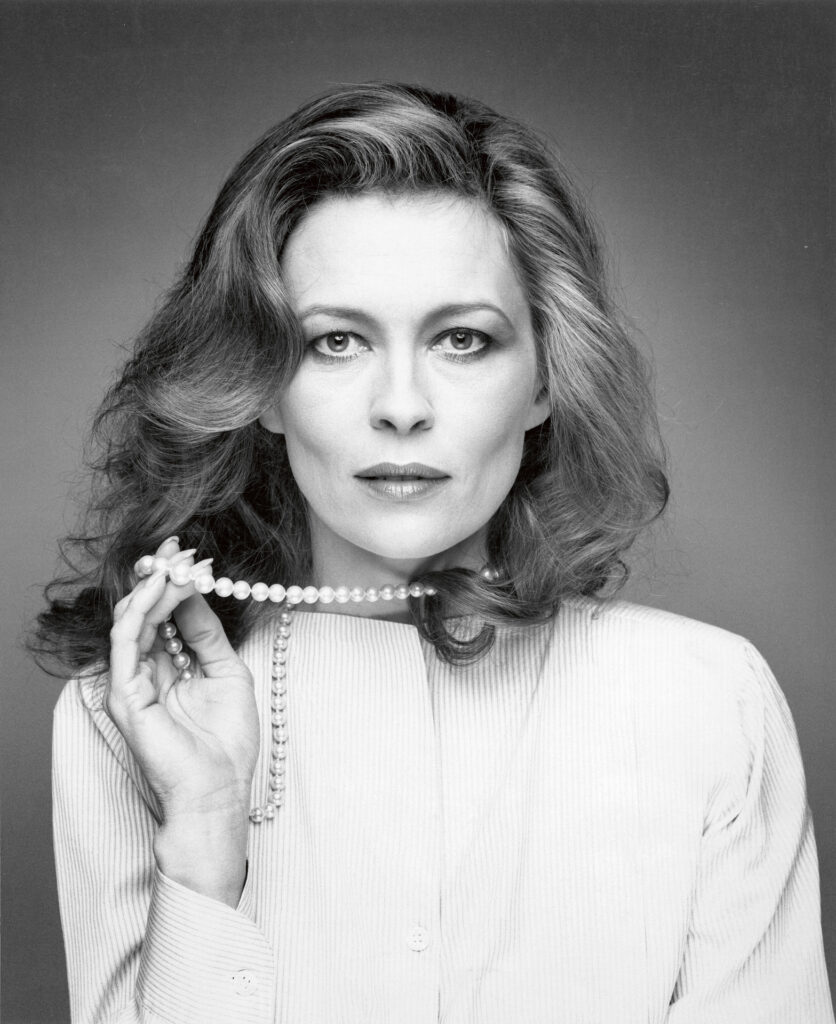
Faye continued making great films in the 80s. One of my favorite films is Barfly. I can’t think of many other actresses at that time that would do that role.
She was known for being glamorous, and as we say in the film, she’s equally an actor, but also a model, a fashion icon. So for her to embrace de-glamorizing herself, and then the role itself was extremely courageous at a time when she’s older and things are changing in the business and particularly again, that horrible thing that happened mainly to women actors not getting great roles because they’re considered older. So, for her to take on that role was extremely significant.
Her performances are so indelible and stuck in our heads because she’s extremely real. I think that comes out in everything that she does, right?
I think her son says in the film that there’s a little bit of her in every role she played, even someone like Laura Mars, again, kind of like a horror film of the seventies kind of thing, because she was married to a photographer because she had been a fashion icon. There’s a little bit of her in there. You can look at all those roles and say, yeah, it feels real. But it also feels like she embraced those roles to a level that borderline could destroy her. I think that’s what happened with something like Mommy Dearest where she’s on a completely different level of performance than the director is even expecting.
There’s a story about her in Network, which she told me, and I didn’t put it in the film because it’s not completely accurate, but when she’s breaking up with William Holden, she was going to justify her behavior. I don’t know how to love or whatever she says to him, when they did one take, he cut before she said her line, and she said to him, “Why did you cut?” He said, “Because the look on your face was so perfect that it didn’t need dialogue.” Well, in the film, you do have dialogue in the end, but I think it’s another angle.
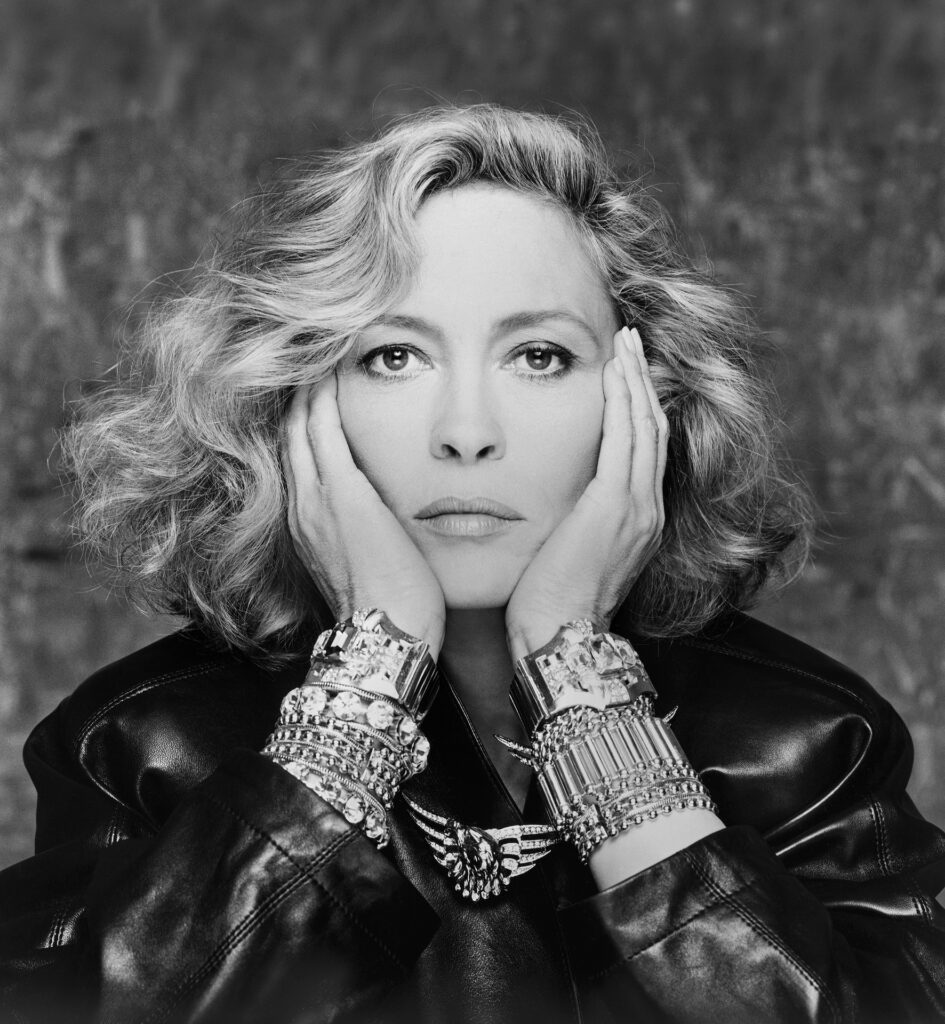
Please tell us about your setup and your approach to interviews.
In terms of the setup, I work very hard. I have to tell you, one of the worst things you could say to me is, “Oh, you did another talking head documentary.” Because to me, it’s not a talking head, it’s a closeup, right?
When you watch a movie and there’s a closeup of an actor, those are not talking heads. The news is talking heads. But in a film like this, I always fight with my editor because you always want to cut away from an illustration. I’m like, no, no, no please stay a few more seconds on Faye.
What do you hope audiences take away from this?
Well, it’s a great question because we are in an age where so much is available. Let me put it this way, when I became obsessed with movies when I was a kid, I would go to the movies all the time to Cinematheque in Paris and watch old movies. When Hitchcock died, I remember I saw he made 54 movies. I think I saw 44 movies of his. Within a month, I had my little program because I just felt if you love cinema, you have to understand Alfred Hitchcock, right? And you still do. I think it’s hard. It took work. I had to make the effort. In today’s world, all those films are available on iTunes, et cetera, but people don’t know they exist. They have no idea.
Young people have no idea that there was a person named Faye Dunaway for the most part. What I’m hoping is that through the fact that her story is very relatable, here’s someone who had a passion and who lived for it, who dedicated herself to her art form. That’s very relatable. That’s very real. I want people to rediscover an aspect of the American Cinema as it existed many years ago and needs to be remembered and celebrated. Many actors have acknowledged how much they’ve been inspired by her. I hope the ripple effect continues.
Faye is now available to stream on Max.


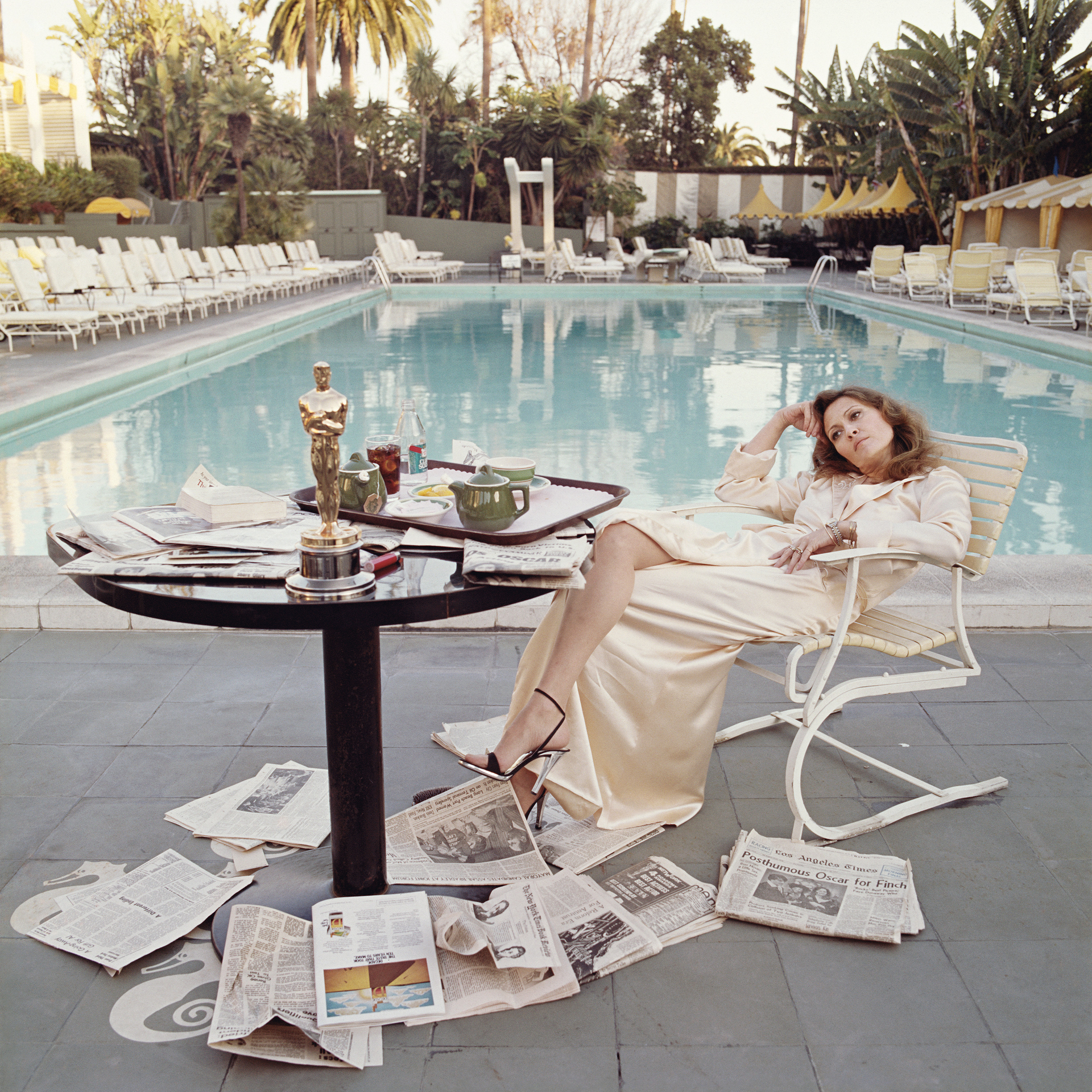
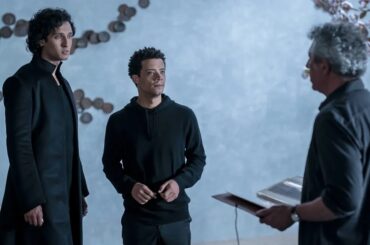
![‘Shōgun’ Cinematographer Sam McCurdy Breaks Down Episodes 9 & 10 [Part 1]](../wp-content/uploads/2024/07/hiro-370x245.jpeg)
